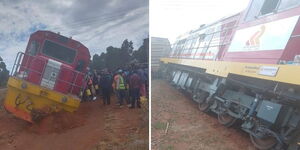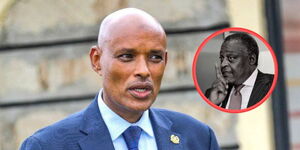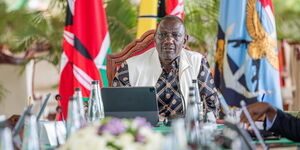Despite the possibility that everyone may have lost a loved one or visited a mortuary at one point in life, not many people would tell whether they were served by a qualified mortician or not, others may not give much thought to who took care of the bodies of their loved one.
Following startling reports of the shortage of qualified morgue attendants in the country, Kenyans.co.ke set out to find out exactly how urgent the situation was in mortuaries by approaching veteran morticians familiar with the funeral industry.
According to the Funeral Services Association of Kenya (FSAK), the country has a total of only 100 trained morticians, a clear indication that the largest percentage of mortuaries are being run by casuals with barely any training.
The association chairperson Ezra Olak revealed to this writer how the employment of untrained personnel has worsened the situation in the sector, with increased cases of decomposing bodies, organ harvesting and general mishandling of bodies.
“This sector has only 100 qualified morticians who have undergone training in mortuary science. Mortuary owners are only going for people in the streets who are jobless and ready to take up any role. This has greatly affected the consideration of the ethics as many untrained morticians operate under the influence of drugs,” remarked Olak.
“The untrained personnel can do anything they are asked to because they don’t subscribe to any code of ethics,” he added.
Olak expressed concern over the haphazard use of preservation chemicals by untrained personnel whom he said can only use the chemicals based on vivid guesswork.
“Many are times that bodies are brought to mortuaries and the owners later find them blacker than they left them. This is a problem that has even occasioned families doubting the bodies of their loved ones as a result of excessive administration of Formalin preservatives.
“The untrained morticians just inject formalin on the bodies without knowledge of the levels and frequencies at which it should be administered," he explained.
The curious case of the harvesting of body organs for supposedly witchcraft purposes is also attributed to the low ethical standards of untrained morticians.
“Mortuaries are preferring untrained personnel who may even be forced to be reliant on drugs to perform. However, this denies the families of the deceased a respectable preservation for the bodies,” Olak decried.
A resident mortician at a national referral hospital who sought anonymity narrated to Kenyans.co.ke how trained morticians from the Chiromo Mortuary training facility are denied jobs by hospitals and morgue owners that largely preferred untrained personnel who are easily gullible.
"I know of some qualified morticians who went to Chiromo Mortuary to undertake a certificate course but they have no jobs. All opportunities are being given to the untrained morticians who know nothing about mortuary science,"
"Some of these mortuaries have suffered losses especially from embalming mistakes for bodies that require correct embalming. The untrained embalmers don't even have a clue of the necessary specifications that are required. This is something you only learn from mortuary science classes," the source explained.
Worse, untrained morticians expose themselves to serious health risks by the ignorance to mortuary best practices. They are at a huge risk of contracting diseases from corpses such as Tuberculosis and other airborne diseases which can easily be contacted when the morticians don't have the necessary gear.
According to the World Health Organisation (WHO), Tuberculosis can be acquired if the residual air in the lungs is exhaled, fluid from lungs spurted up through the nose or mouth during the handling of a corpse.












